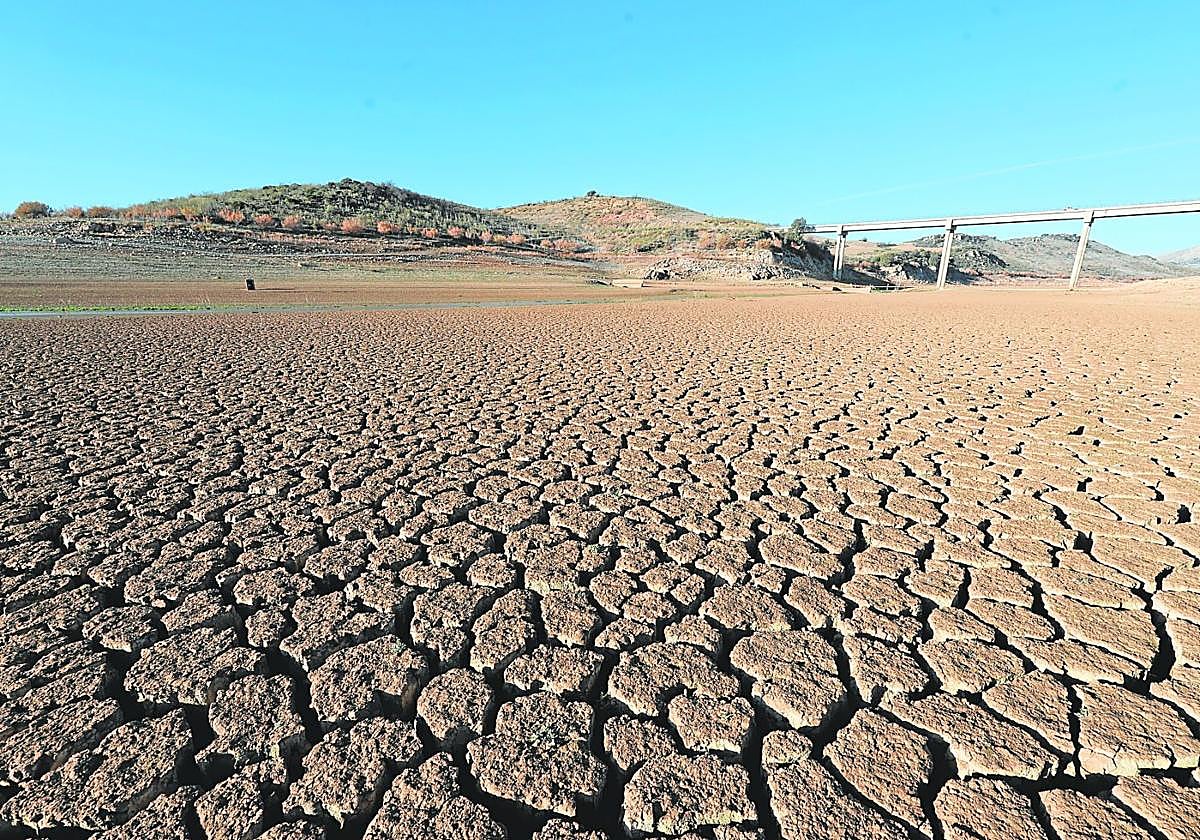Severe drought and hotter than ever
Climate ·
2023 has been the driest year in Malaga since the 19th century while thermometers in the region have hit all-time highsJennie Rhodes
Malaga
Friday, 29 December 2023
The last 12 months have been hit by ever-worsening drought conditions on the Costa del Sol as the lack of rain has combined with some of the highest temperatures on record.
Water restrictions are brought in as the rain fails to arrive
The persistent drought and lack of rainfall has undoubtedly been the biggest story of 2023 in Malaga province. As the rain fails to arrive, despite promises of a wet autumn, the authorities have been looking at different water-saving measures.
At least eight towns and villages in the Axarquía district east of Malaga have been living with nighttime cuts to the water supply since July (Vélez-Málaga, Iznate, Benamargosa, El Borge, Almáchar, Moclinejo, Periana, Sedella and Colmenar) and Rincón de la Victoria joined them in November.
In December, the main water supplier of the western Costa del Sol, Acosol, started to reduce water pressure in homes and seal off some residential meters in a bid to save water.
Pumps were installed in the Axarquía's La Viñuela reservoir in November to salvage every last drop as levels fell to just over 7% while the Junta de Andalucía and national government have taken a step further in the long process towards a much-needed desalination plant in the Axarquía. This facility would not be ready until 2026 at the earliest, according to experts, and meanwhile the regional and local authorities are promising a number of portable desalination plants (installed in containers) for the Costa del Sol.
In mid-December the Guadalteba had just over 36 cubic hectometres (23.76% of its capacity); the Guadalhorce 20 cubic hectometres (16.10%), and the Conde del Guadalhorce at 11.23 (16.89%), is at historic lows.
The Diputación de Málaga provincial authority estimates that the impact on the province's gross domestic product could reach 40% if the drought persists. In December Malaga Port said that it was preparing to receive water brought in by ship if the drought situation persists.
La Viñuela water bills
In October residents of La Viñuela in the Axarquía threatened to take action if the town hall did not find answers to why some people had been hit with water bills exceeding 45,000 euros. Around 20 property owners, including Spanish and foreign residents, received excessively high bills without any explanation from the town hall. They argue that the readings were due to air entering the pipes during cuts to the supply.
Record-breaking temperatures and gale-force winds
After an undramatic start to 2023 weather-wise, gale-force winds in February destroyed the iconic Botavara 'chiringuito' beach bar and restaurant on the seafront in Fuengirola. Waves almost three-metres high, with a lull of just 5.6 seconds between them (data officially collected at the Port of Malaga), caused serious damage, both to the platform where the front terrace was located - which was engulfed by the sea.
This year saw the hottest July in Malaga and on the Costa del Sol since records began in 1942 when the average temperature recorded at the official Aemet weather station at Malaga Airport was 29.5C; some 3.4 degrees higher than normal. In August Montoro (Cordoba province) was the municipality which recorded the highest maximum temperature in Andalucía during a heatwave with 45.3C, followed by Carrión de los Céspedes, the second highest maximum temperature, with 45.2 degrees on Friday 11 August.
Later in August the winds returned and three people were injured after being hit by tree branches dislodged by the strong gusts of wind that blew across Malaga province.
The hot temperatures continued well into October. However, the strong winds were back on Thursday 19 October, when around 40 flights were diverted from Malaga to other airports in Spain as crosswinds and gusts of up to 50 knots battered the Costa del Sol.
After a brief spell of much-needed rain in November, which did little to relieve the drought situation, Malaga city registered almost 30C on Tuesday 12 December making it the hottest place in the whole of Spain and shattering the previous record for the highest maximum temperature for the month in the province in the process.
The record came just one day after coastal mist covered almost the entire stretch of the Costa del Sol. The 'taró' as it is known locally is more typical in May, June or July. Experts say that climate change has been causing the mist to roll in during the winter months as well for a number of years.
2023: a year in the news - all topics
- Severe drought and hotter than ever
- Record tourism figures on the Costa del Sol
- New train lines but busier than ever
- A year of elections in Spain and Gibraltar
- Brexit fallout continues with driving licence deal and Gib talks
- Art and culture, from stage to museum
- A black year for violence against women
- 2023 - high and dry
-
